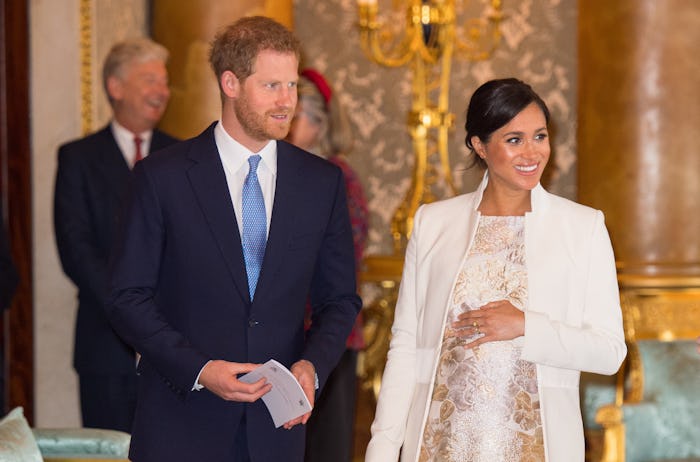Entertainment

Sounds Like Baby Sussex Could Have Dual Citizenship (& Have To Pay Taxes)
Meghan Markle and Prince Harry have finally announced the birth of their first child, causing celebration across continents. The baby boy, who was welcomed early morning in the United Kingdom just today, May 6, is already raising eyebrows when it comes to his citizenship. Many are already likely wondering: Is Meghan Markle’s baby American? Well as it turns out, according to the BBC, the newest royal member is a dual citizen.
Dual nationality, according to the U.S. Department of State’s website, occurs simply when a person is a national of two countries at the same time. According to The New York Times, citizenship through parents depends on where the baby is born, whether one or both parents of the baby are U.S. citizens, and whether or not the parents are married.
In the royal newborn’s case, Meghan Markle is an American citizen who gave birth in wedlock with an “alien” on U.K. soil. As a result, the baby boy is both a U.S. citizen, thanks to Markle’s nationality, and is also seventh in line to the British throne, behind the Prince of Wales, the Duke of Cambridge, his three children (Prince George, Princess Charlotte and Prince Louis), and Prince Harry.
The New York Times reported that Markle and Prince Harry will have to report the birth to an American consulate through a form called the U.S. consular report of birth abroad. With that form, the new royal baby will also be eligible to apply for a passport to the U.S.
According to CNN, the couple’s newest addition will also likely have to pay taxes as an American citizen. "The United States has -- unique among nations -- a citizenship-based taxation (system), so as long as Meghan is a citizen of the United States she is taxed,” David Treitel, founder of a tax advisory firm that helps prepare for both U.S. and U.K. tax return, told CNN.
This means the baby’s finances would be up for scrutiny by the Internal Revenue Service (IRS), as well. However, international tax lawyer Stuart E. Horwich told CBS that he expects the royal family’s financial advisors to legally protect the child from U.S. tax obligations while also ensuring financial privacy.
The newborn’s dual citizenship and finances seem to have already put experts in a bind. “This baby will have access to trusts and the use of a nice home in Windsor and other financial assets that the royal family has, so there is a lot of reporting that will need to be done,” Treitel told CBS. "The royal accountants will have a tough time learning U.S. tax rules and figuring out what they have to report."
There is no precedent for the royal British family to be filing taxes with the IRS, since no American has previously been a member of the family, and this could prove to be a potentially sticky situation between the U.S. tax authorities and the royal family.
In the meantime, the new royal baby boy may be able to enjoy the perks of both American and British life.